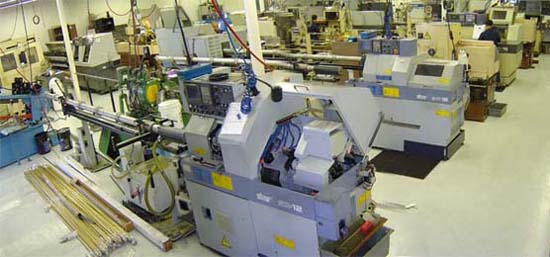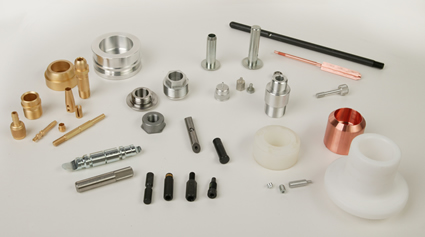Swiss Screw Machine & Manufacturing Review
Swiss Screw Machine & Manufacturing Review
Swiss Style screw machines originated in Switzerland in the late 1800’s to manufacture precision, high-volume components for the Swiss watch industry. Swiss screw machining and machines have evolved into an industrial technology that is essential to machine the modern precision components critical for many industries and applications across the world.
A Swiss screw machine is a lathe type metalworking machine used in the manufacturing of high-volume turned components. Screw machines are typically employed and specialized in the automated production of small parts. These machines are similar to lathes, except these machining centers have numerous spindles. A common configuration for Swiss screw machines is a six-spindled machine.
Screw machine products are usually cylindrical and threaded. Some common products produced include screws, bolts, pins, fittings, bushings, rivets, fasteners, hydraulic components and studs. Most of these products are made of metal, but these machines can manufacture from plastic or wooden materials as well.
Screw machines by application are automated, whether by CNC controls or mechanically (via cams), once setup and started running, screw machines will continue to run and produce components with very minimal operator assistance. Most Swiss screw machines are CNC controlled, however mechanical screw machines are still utilized within industry. Often and depending on complexity and application, the production of high-volume turned components by mechanical swiss screw machines are more cost effective as opposed to CNC controlled machines.
Swiss style screw machines are available in a variety CNC axis, spindle numbers, and automatic stock feed capabilities. A classic swiss screw machine may have multiple spindles with the capability to machine multiple tool paths simultaneously.
|
Swiss Screw Machine Cell |
Components Produced by Screw Machines |

